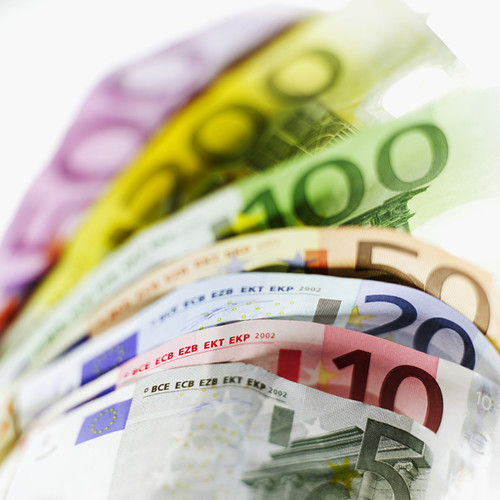
In his latest book, our nations favourite broadcaster, sorry, economist suggests that the best way for Ireland to restore its competitiveness is to abandon the Euro and allow the Punt to devalue, thus increasing exports and attracting new investment. However, this argument is flawed on a number of levels, which should be obvious to someone of McWilliams background.
Firstly, the problem of Ireland's foreign debt (both pubic and private) would still remain, however, having a new currency does not mean that all of these debts are now Punt-denominated. Any loans that we obtained in Euro, will have to be paid back in Euro, meaning that any devaluation for the Punt vs the Euro is an effective percentage increase on the debt we already owe. This would take our already struggling businesses and finally deliver the death blow, our banks would become even more insolvent than they currently stand, needing further capitalisation injections from the state or simply left to collapse.
By leaving the Euro and signalling to the market that we are devaluing the Punt will also lead to capital flight, which will further devalue the Punt, which will lead to capital flight, and so on. With the Punt in freefall the following scenario becomes very likely:
In order to keep the value of the punt from declining, the Central Bank of Ireland had to do the opposite of what it would have done when capital starting coming in: it went into the market to exchange dollars and Euro for Punts, supporting its own currency.
But there is an important difference between trying to keep your currency down and trying to keep it up: the Central Bank of Ireland can increase the supply of Punts as much as it likes, because it can simply print them; but it cannot print Euro. So there was a limit on its ability to keep the Punt up. Sooner or later it would run out of reserves.
The only way to sustain the value of the currency would have been to reduce the number of Punt in circulation, driving up interest rates and thus making it attractive once again to borrow dollars to reinvest in Punt. But this posed problems of a different sort. As the investment boom sputtered out, the Irish economy had slowed—there was less construction activity, which meant fewer jobs, which meant lower income, which meant layoffs in the rest of the economy. The economy was no longer living in the style to which it had become accustomed. To raise interest rates would be to discourage investment further, and perhaps push the economy into an unambiguous slump.
All of this was according to the standard script: it was the classic lead-in to a currency crisis, of the kind that economists love to model—and speculators love to provoke.
As long as the Punt-Euro exchange rate seemed likely to remain stable, the fact that interest rates in Ireland were several points higher than in the Eurozone provided an incentive to borrow in Euro and lend in Punt. But once it became a high probability that the Punt would soon be devalued, the incentive was to go the other way—to borrow in Punt, expecting that the Euro value of these debts would soon be reduced, and acquire Euro, expecting that the Punt value of these assets would soon increase. Local businessmen borrowed in Punt and paid off their Euro loans; wealthy Irish sold their holdings of government debt and bought ECB bonds; and last but not least, some large international hedge funds began borrowing Punt and converting the proceeds into dollars/Euro.
All of these actions involved selling Punt and buying other currencies, which meant that they required the central bank to buy even more Punts to keep the currency from falling, which depleted its reserves of foreign exchange even faster—which further reinforced the conviction that the Punt was going to be devalued sooner rather than later. A classic currency crisis was in full swing.
Like many governments before and no doubt many to come, Ireland's waited as its reserves ran down. On that day, the Irish had to let the Punt go...most people thought that the devaluation of the Punt would pretty much end the story...And so there would not be a devastating recession. They were wrong.Not only does this scenario follow Macroeconomic theory, but it is derived from an actual currency crisis, namely the Thai crisis of July, 1997. What you read above was an extract from Paul Krugman's "The Return of Depression Economics" with some adjustments made to make it read like an Irish crisis.
This is the very likely cost of leaving the Euro, at this moment in time. Any feasible gains in competitiveness would be more than wiped out by the losses and insolvency damage caused by a devaluation, especially for a country which has the 4th highest private debt in the world.




